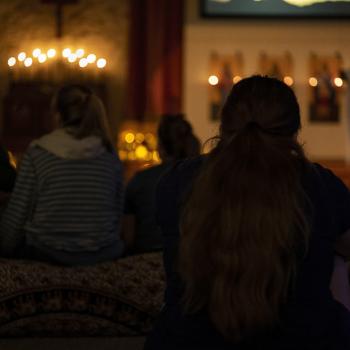Let's talk more about education. Your work, The Scandal of the Evangelical Mind, had an enormous influence amongst Christian intellectuals. You have taught at Wheaton and Notre Dame, flagships institutions for evangelicals and Catholics. Was there ever a similar Scandal of the Catholic Mind?
The history of Catholic higher education is in many ways quite different from Protestant higher education. Catholics in America always had an anchor in European discussions, always had an outlet for training leaders. They retained an interest, for example, in Thomas Aquinas and in the philosophical and theological debates of the early modern period, in a way that is not common among Protestant evangelicals.
Catholics have confronted the different problem of figuring out how to bring ancestral wisdom to bear on very modern conditions. In the 19th century, popes who were conservative in their culture and philosophy as well as their theology made more difficult for American Catholics the task of communicating in a modern liberal democracy, such as the United States. Since the mid-20th century there have been many exemplary Catholic intellectuals who have shown how that leap to the modern world can take place. They range across a wide spectrum, but you can think of people like Alasdair MacIntyre, Charles Taylor, and Mary Douglas. They are by no means identical in what they do or say, but they all show how the historical riches of Catholicism can be brought to bear on modern intellectual debates.
So, was there a scandal of the Catholic mind? Maybe so, in the sense of not knowing how to articulate traditional Catholic teaching in an American setting, but it was a different kind of problem than what engaged Protestant evangelicals.
Is there an evangelical mind today? Is the "scandal" ongoing, or have we witnessed the formation of an evangelical mind in the sixteen years since you published that book?
I don't think we've seen the emergence of an evangelical mind. I do think we have many more evangelicals who are involved in serious intellectual efforts with strong Christian foundations. Evangelicalism is a movement characterized more by activism, evangelism, and church growth. It's really not set up to have a single approach to thinking.
But yes, there has been progress on many fronts. There was probably, when I wrote the book, more progress than I gave credit for, among evangelical Christians working hard in different intellectual areas.
One sometimes hears professors or historians say, "As a historian I believe X, because I am required to operate according to a certain methodology. But as an individual believer, I believe Y." The question is: is that a stable arrangement? Over the long haul, the more that one practices a methodological naturalism, or something of that sort, will one eventually come not only to practice naturalism as a methodological matter but to accept it as a metaphysical matter? Is it practical to bifurcate ourselves as scholars into one part that draws conclusions according to rigorous methodological criteria and another part that confesses a different set of beliefs?
I actually think it's fatal for long-term Christian thinking and fatal for the long-term health of Christianity per se to live under different basic commitments in professional life and church life. To say that I adopt the rules of the game for academic life Monday to Friday, and the rules of church life on Sunday, that's a real problem.
However, what's required for many domains of learning, and I would include biblical studies, is the serious use of the mind while the spirit is fully cast in a Christian foundation. That can be a difficult challenge where much of the formal thinking about something has been dominated by non-Christian influences for some time, as would be the case in biblical study at research universities.
But the way forward is not to split the personality. The way forward would be following the path charted out by the really significant Christian philosophers of the late 20th and early 21st centuries, who have urged more professional abilities, but also more courage in letting Christian foundations dictate how those professional abilities are put to use. I am filled with admiration for people like Robert Adams, Nicholas Wolterstorff, and Alvin Plantinga, who have been thoroughly elite and thoroughly professional, but also foundationally Christian in how they put to use their professional wisdom. That, I think, is the model. They have not divided themselves into an academic part and a believer part.
Turning now to global matters: In your recent book, The New Shape of World Christianity, you provide some fascinating statistics about the transformations of the Christian church around the globe. Who was the typical Christian one hundred years ago, and who is the typical Christian today?





